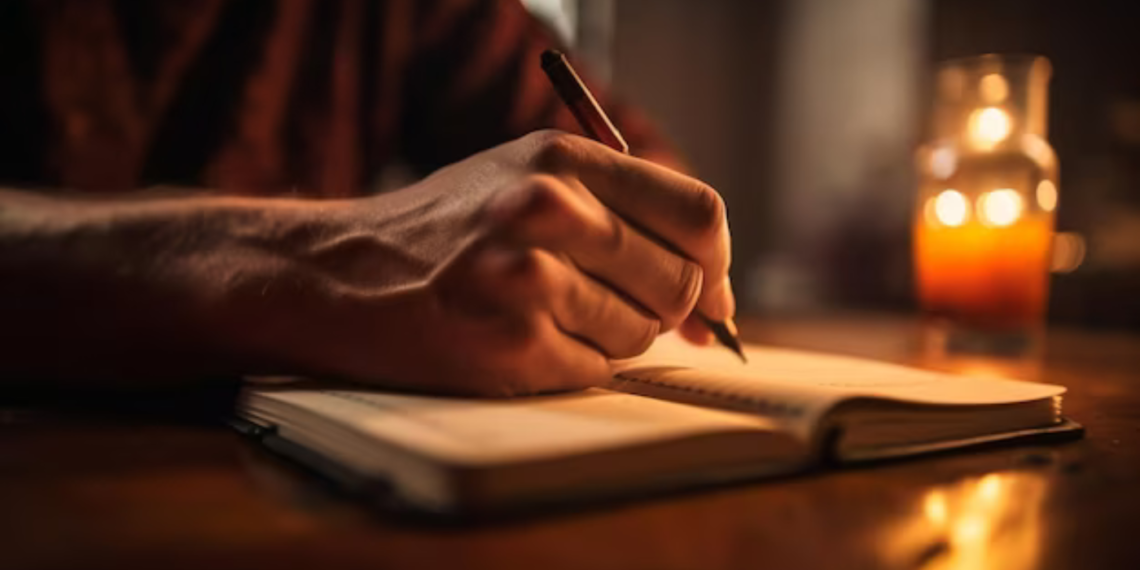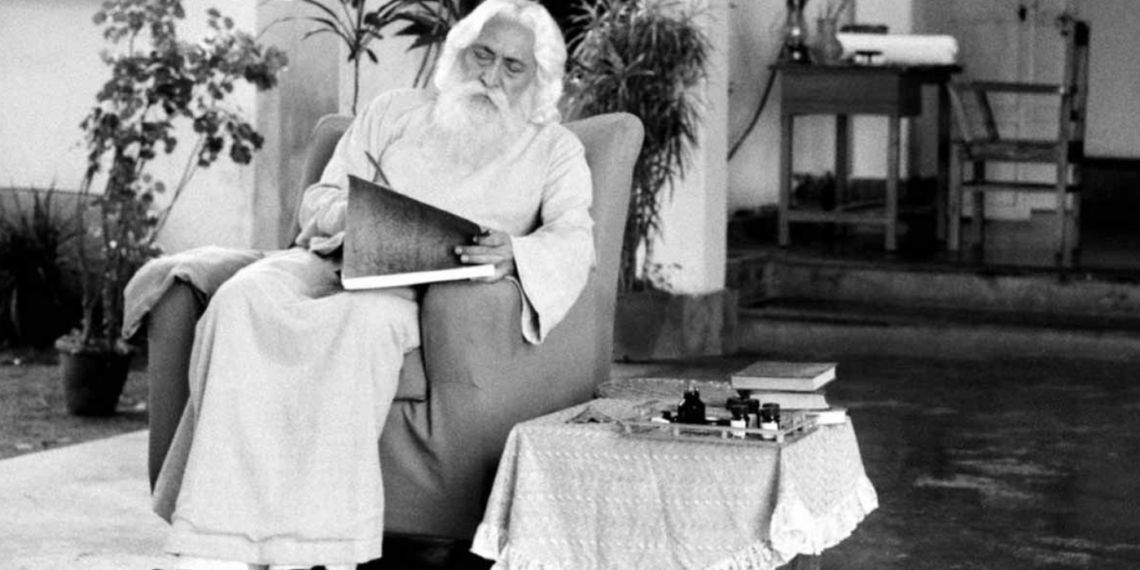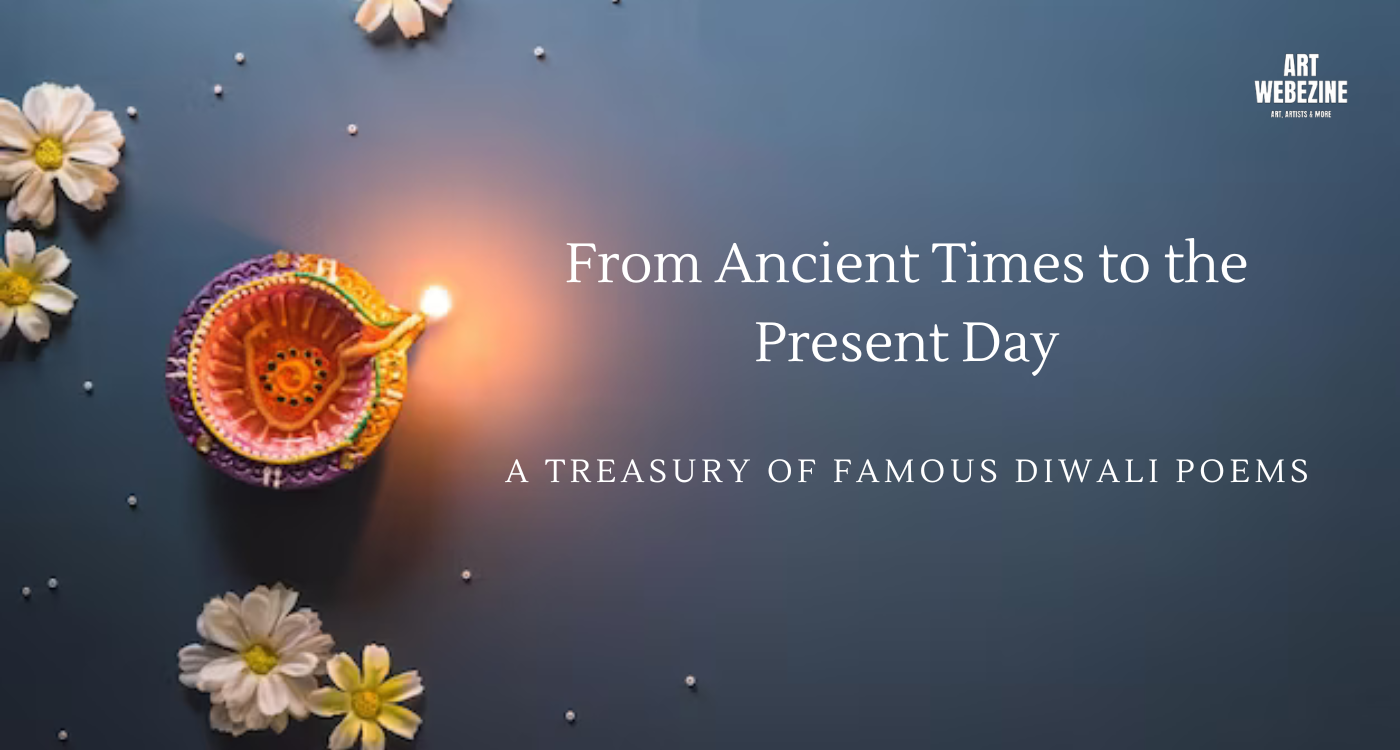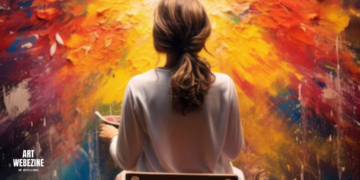The following collection of Famous Diwali Poems showcases the work of renowned poets, both from ancient times and the present day. These poems offer a diverse perspectives on Diwali, ranging from its religious significance to its cultural impact. Each poem is a testament to the enduring power of poetry to capture the essence of human experience.
As you delve into this collection, you will encounter the works of celebrated poets like Harivansh Rai Bachchan, Rabindranath Tagore, and Sarojini Naidu. Their poems, rich in imagery and symbolism, transport you to the heart of Diwali celebrations, evoking the sights, sounds, and emotions of this special festival.
Through their verses, these poets explore the themes of light, hope, and renewal that are central to Diwali. They remind us that even in the darkest of times, there is always a glimmer of light to guide us. Their words inspire us to embrace the spirit of Diwali, spreading joy and kindness wherever we go.
Whether you are a seasoned Diwali celebrant or simply curious about this remarkable festival, this collection of Famous Diwali Poems will provide you with a deeper understanding of its significance and beauty. Let the words of these gifted poets illuminate your path and fill your heart with the warmth of Diwali.
Diwali Through The Ages: A Poetic Journey

Diwali, the Festival of Lights, has illuminated the hearts and minds of people across the globe for centuries. This radiant celebration of hope and triumph over darkness has inspired countless poets to capture its essence in verses that echo through the ages. Embark on a poetic journey through time as we explore Diwali’s portrayal in ancient Indian literature, delve into the rich tapestry of medieval Diwali poems, and examine the evolution of Diwali poetry in the modern era.
Ancient Times: Unearthing Diwali’s Literary Roots
Our journey begins in the ancient era, where Diwali finds its roots in the mythological tales of India. In the epic Ramayana, the return of Lord Rama to Ayodhya, his kingdom, after a 14-year exile is celebrated with the illumination of countless lamps, symbolizing the triumph of good over evil. This joyous occasion marks the genesis of Diwali, and its significance is deeply embedded in ancient Indian literature.
The Sanskrit epic Mahabharata, another literary masterpiece, also alludes to Diwali. The lighting of lamps is associated with the Pandavas’ victory over the Kauravas, emphasizing the restoration of dharma, or righteousness. These ancient literary references establish Diwali’s deep-rooted significance in Indian culture and its enduring symbolism of light dispelling darkness.
Medieval Era: A Tapestry of Diwali Poems
The medieval era witnessed a flourishing of Diwali poetry, with poets weaving verses that captured the essence of the festival. In the 12th century, the renowned Sanskrit poet Bilhana composed the “Chaurapanchashika,” a collection of 55 stanzas dedicated to Diwali. His verses vividly describe the vibrant atmosphere of the festival, the illumination of homes with lamps, and the joyous gatherings of families and friends.
Another notable medieval poet, Jayadeva, immortalized Diwali in his epic poem “Gita Govinda.” His verses, infused with devotion and情感, depict the festival as a celebration of divine love and the triumph of good over evil. These medieval poems not only showcase the literary brilliance of the era but also underscore the enduring significance of Diwali in Indian culture.
Modern Era: Diwali Poetry in Contemporary Context
As we move into the modern era, Diwali poetry continues to evolve, reflecting the changing social, cultural, and political landscape. Modern poets like Rabindranath Tagore, Harivansh Rai Bachchan, and Sarojini Naidu have penned verses that capture the essence of Diwali in a contemporary context.
Tagore’s “Shubh Deepawali” is a poignant reminder of the universal message of Diwali, emphasizing the need to dispel darkness from within and embrace the light of knowledge, compassion, and love. Bachchan’s “Deepwali ki Raat” vividly portrays the festive atmosphere of Diwali, while Naidu’s “Diwali” celebrates the festival as a symbol of hope and unity in a diverse world.
Modern Diwali poetry not only reflects the changing times but also highlights the enduring themes of the festival – the triumph of light over darkness, the victory of good over evil, and the celebration of hope and joy.
Diwali poetry, spanning centuries, serves as a testament to the enduring legacy of this luminous festival. From ancient verses to modern compositions, poets have captured the essence of Diwali, illuminating its significance and inspiring generations with its message of hope and transformation. As we continue to celebrate Diwali, let us cherish the rich tapestry of poetry that has been woven around this festival, reminding us of its timeless values and the enduring power of light to dispel darkness.
How to Write a Poem for Diwali?
Writing a Diwali poem is a creative process that allows you to express your thoughts and feelings about the festival. Here’s a guide on how to write a poem for Diwali, keeping in mind the keywords you provided:
- Inspiration from Famous Diwali Poems: Start by reading famous Diwali poems by successful writers. This will give you insights into the themes, imagery, and styles commonly associated with Diwali poetry. Take note of what resonates with you.
- Diwali Poem Themes: Consider the key themes of Diwali, such as light, hope, family, tradition, and spirituality. Choose one or more themes that resonate with you and that you’d like to incorporate into your poem.
- Structure and Style: Decide on the structure and style of your poem. Will it be a rhyming poem, a free verse poem, or something else? Think about the tone you want to convey, whether it’s celebratory, reflective, or a combination of both.
- Imagery and Symbolism: Diwali is known for its symbolic elements like lamps, fireworks, sweets, and the victory of light over darkness. Incorporate these symbols and use vivid imagery to paint a picture in your reader’s mind.
- Emotions and Message: Diwali is a time of joy and togetherness. Think about the emotions you want to convey in your poem. It could be a message of unity, hope, gratitude, or simply a celebration of the festival.
- Draft and Revise: Start writing your poem, keeping in mind the themes, structure, and style you’ve chosen. Don’t be afraid to revise and refine your work. Poetry often benefits from multiple drafts.
- Celebrate Diwali Spirit: Ensure that your poem captures the spirit of Diwali. It should reflect the essence of the festival and what it means to you.
- Share and Seek Feedback: Share your poem with others, especially those who celebrate Diwali. Their feedback can be valuable in refining your poem and making it more relatable.
- Publish or Share Your Poem: You can share your Diwali poem with your friends and family, or consider submitting it to a literary magazine or website. Sharing your work with a wider audience can be a rewarding experience.
Remember that writing a poem is a personal and creative endeavor. Let your own voice and experiences shine through in your Diwali poem, and don’t be afraid to experiment with different styles and approaches until you’re satisfied with the result.
A Selection of Famous Diwali Poems

Diwali, the Festival of Lights, is a vibrant celebration of triumph, hope, and spiritual enlightenment. It is a time to dispel darkness with the radiance of light, to vanquish evil with the power of good, and to illuminate the path towards inner peace and harmony. The following collection of renowned Diwali poems, spanning diverse eras and regions, captures the essence of this joyous occasion.
1. “Diwali” by Rabindranath Tagore (1861-1941)
Rabindranath Tagore, the Nobel laureate poet of India, penned this evocative poem that beautifully portrays the transformative power of light during Diwali.
In the lamp's little life, my desires are burning, And the fragrance of my heart in the evening air is flying. In the lamp's little body, my soul takes its abode, And the flame of the lamp is the desire of my soul, the desire for the endless.
Tagore’s imagery of a lamp’s flame as a symbol of the soul’s yearning for the infinite captures the spiritual essence of Diwali. The poem’s simple yet profound language resonates with the universal human aspiration for enlightenment.
Literary Devices: Metaphors, similes, personification
Imagery: Lighted lamps, darkness dispelled, inner light, spiritual enlightenment
Thematic Depth: Illumination of the inner self, victory of light over darkness, spiritual awakening
2. “Diwali: A Festival of Lights” by Sarojini Naidu (1879-1949)
Sarojini Naidu, the “Nightingale of India,” celebrated Diwali in her poem, highlighting the festival’s significance as a victory of light over darkness.
In the heart of darkness, a lamp is lit,
A beacon of hope, a symbol of light.
Diwali, the festival of lights,
A celebration of joy, a triumph of rights.
Naidu’s poem emphasizes the transformative power of light, which dispels darkness and brings forth hope and joy. She beautifully captures the essence of Diwali as a celebration of the human spirit’s resilience and the triumph of good over evil.
Literary Devices: Rhyme scheme, repetition, alliteration
Imagery: Colored lights, festive decorations, sweet delicacies, joyous gatherings
Thematic Depth: Celebration of light, joy, and togetherness, renewal and new beginnings
3. “Diwali” by Kamala Das (1924-2009)
Kamala Das, the renowned Indian poet, penned a personal and introspective poem on Diwali, reflecting on the festival’s impact on her life.
I light my lamps for Diwali,
But the darkness inside me remains.
The world outside is ablaze with light,
But my heart is filled with pain.
Das’s poem delves into the personal struggles and emotions that can coexist amidst the joyous festivities of Diwali. Her honest portrayal of inner turmoil highlights the festival’s ability to evoke deep introspection and self-reflection.
Literary Devices: Metaphors, similes, imagery
Imagery: Lighted diyas, flickering shadows, reflections in the mirror, introspection
Thematic Depth: Contrasts between light and darkness, inner turmoil and external celebrations, self-reflection and introspection
4. “Diwali: A Festival of Hope” by Nissim Ezekiel (1923-2006)
Nissim Ezekiel, the Indian Jewish poet, celebrated Diwali in his poem, emphasizing its universal message of hope and renewal.
In the darkness of the night,
A spark ignites,
A flame takes flight,
And Diwali brings light.
Ezekiel’s poem highlights the universal significance of Diwali as a symbol of hope and renewal, transcending cultural and religious boundaries. The poem’s simple yet powerful imagery captures the essence of the festival’s message of illumination and transformation.
Literary Devices: Metaphors, similes, symbolism
Imagery: The poem’s imagery is stark and evocative, contrasting the darkness of night with the spark and flame of light, triumph of hope over despair.
Thematic Depth: The poem emphasizes hope, renewal, and universality, highlighting the potential for light and renewal during Diwali, a time for personal and collective renewal.
5. “Diwali: A Festival of Joy” by Anjum Hasan (born 1955)
Anjum Hasan, the contemporary Indian writer, penned a joyful and celebratory poem on Diwali, capturing the vibrant spirit of the festival.
Diwali, Diwali, the festival of light,
A time for joy, a time for delight.
The streets are lit up with diyas so bright,
And the air is filled with the sounds of laughter and delight.
Hasan’s poem captures the infectious joy and vibrancy of Diwali, a time for celebration, togetherness, and the sharing of happiness. The poem’s lively imagery and rhythm transport the reader into the heart of the festive celebrations.
Literary Devices: Metaphors, similes, symbolism
Imagery: The poem’s imagery is vibrant and colorful, capturing the festive atmosphere of Diwali.
Thematic Depth: The poem celebrates joy, celebrating the happiness and delight of Diwali, emphasizing the festive atmosphere and the importance of community and togetherness.
Medieval Diwali Poems
During the medieval period, Diwali poetry flourished in various regional languages, including Tamil, Telugu, and Marathi. These poems often reflected the cultural and social milieu of the time, incorporating themes of love, devotion, and community.
A notable Tamil Diwali poem, the Dipavali Virutham, by the 12th-century poet Avvaiyar, celebrates the festival’s joy and prosperity:
"Diwali has come, bringing light and delight,
Let us rejoice and dance, our hearts filled with light,
May this festival bless us with wealth and prosperity."
A Telugu Diwali poem, the Dipavali Dandakam, by the 13th-century poet Palkuriki Somanatha, highlights the spiritual significance of the festival:
"Let us light the lamps of devotion,
And illuminate our souls with the divine light,
May Diwali guide us towards the path of enlightenment."
Modern Diwali Poems
In the modern era, Diwali poetry continued to evolve, reflecting the changing social and cultural landscape of India. Modern poets infused their Diwali poems with a sense of nationalism, social consciousness, and personal introspection.
A notable Hindi Diwali poem, the Diwali Ke Din, by the renowned poet Harivansh Rai Bachchan, celebrates the festival’s universal appeal:
"Diwali is not just a Hindu festival,
It is a celebration of light,
A symbol of hope for all humanity."
A Bengali Diwali poem, the Dipali Smriti, by the poet Jibanananda Das, reflects on the festival’s impact on the individual:
"In the flickering light of diyas,
I see my own reflection,
The darkness within me slowly fading,
As the light of Diwali fills my soul."These renowned Diwali poems, spanning different eras and regions, offer a diverse and insightful perspective on this significant festival. They delve into the thematic depths of Diwali, exploring its symbolism of light, hope, triumph, and spiritual enlightenment. The poems’ literary devices, imagery, and language beautifully capture the essence of this joyous occasion, reminding us of the power of light to dispel darkness and the enduring human spirit to seek illumination and transformation.







